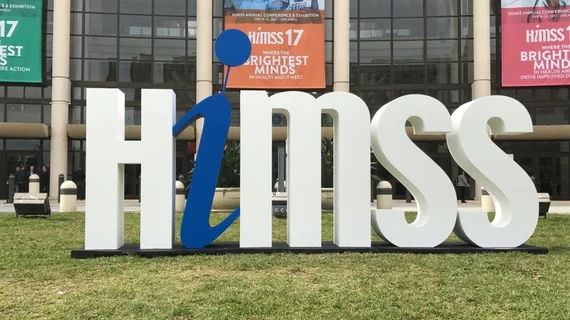HIMSS report: Digital health tools must provide better results in 2019
As the use of digital health tools continues to grow, developers will be expected to prove how the technology can benefit the healthcare industry, according to a new report.
The Healthcare Information and Management Systems (HIMSS) organization released its inaugural “Healthcare Trends Forecast” report ahead of its annual health conference in Orlando next month. The report aims to better understand a wave of changes in digital healthcare and how to tap into the “promise and potential of information and technology.”
The organization said digital health innovators must deliver tangible results for digital health tools in 2019, and digital health tools must prove how they can increase access to care, and improve patient care and coverage. Consumer pressure and the policy/regulatory environment will lead the charge in requiring greater accountability, the report noted.
“There will be increased pressure to standardize systems for advanced interoperability to help improve the way information is shared and care is administered, and to do so more quickly than ever before,” the report stated. “In 2019, new tools and technology will begin to move from the test to market phases more rapidly in order to meet ever increasing consumer expectations and pressure from policymakers.”
The report also stated this year will see more specific real-world applications of digital health technology. Examples included:
- Broader adoption of AI and machine learning in population health to improve identification of those at risk and deliver personalized treatments
- Using virtual reality (VR)/augmented reality as a routine treatment for patient control after surgery and chronic pain control
- Using wearables and implantable health devices to detect chronic conditions and monitor treatment effectiveness
- Increased use and impact of digital therapeutics as alternative treatments
- Broader use of voice recognition and intelligent assistants to reduce clinician burden
The report also said financial pressures on care providers will continue to increase as they are expected to do more with fewer resources, while also reducing costs and providing higher quality and safer care. To meet the demands, health systems, payers and providers will be forced to find new methods for value-based healthcare delivery, which could result in:
- New digital health tools to provide 24/7 access to care, no matter the location
- The utilization of population and public health analytics to identify vulnerable patient groups and find solutions to key social determinants of health
- Robust tools and technology to extend care outside of hospitals, which includes leveraging telehealth, electronic medical records (EMRs) and AI-powered clinical decision support tools
“Healthcare providers are seeking ways to best integrate emerging technologies, such as artificial intelligence, virtual reality and digital therapeutics, as a way to extend quality care to their patients where they are, when they need it,” the report concluded. “And, consumers are placing higher demands on their providers to deliver always-on access to care. We implore all stakeholders throughout the healthcare ecosystem to take this holistic approach to development in 2019.”

